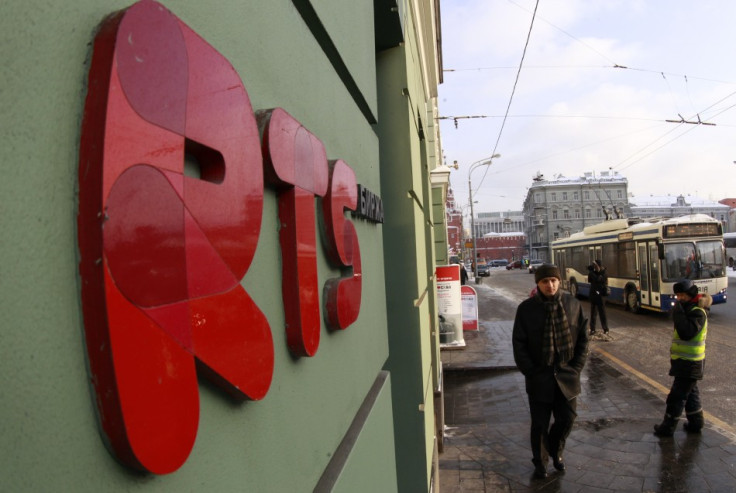Russia's Economy Grows at Slowest Pace in Three Years

Russia's central bank could be forced to react more quickly to ease its tight monetary policies after official figures showed the slowest pace of economic growth in at least three years.
The Federal State Statistics Service, known as ROSSAT, said the economy grew by 3.4 percent last year, down from its 4.3 percent pace in 2011 and the slowest since the country slipped into a near recession in 2009 following the global financial crisis. Russia's Economy Ministry is forecasting a 3.6 percent expansion this year.
"As economic growth slipped further below potential in (the final three months of last year), the pressure to ease monetary policy will continue to build, especially so in the light of limited policy room on the fiscal side," Societe Generale economists Vladimir Kolychev and Vladimir Tslbanov wrote in a note to clients published before the ROSSAT release. "The (Central Bank of Russia) is sure to succumb, but perhaps not before inflation turns the corner in March-April.
The International Monetary Fund, in its latest World Economic Outlook, had forecast a 3.6 percent growth rate for this year followed by expansions of 3.7 percent and 3.8 percent over the next two years. A poll conducted by Reuters and published Thursday sees 2013 growth slowing to 3.2 percent.
The Reuters poll also suggest economists aren't expecting a move from the central bank on its key policy rate until at least the third quarter of this year.
The Central Bank of Russia (CBR) has taken some initial steps towards monetary easing by dropping its hawkish rhetoric in its January statement but kept its key rate unchanged at 8.25 percent and held firm on its fight against inflation, which it estimates at 6.8 percent. Its current 2013 inflation forecast is 6.7 percent and its growth estimate is 3.5 percent.
"The inflation rate staying above the target range for a prolonged period of time may affect economic agents' expectations and thus poses inflation risks, despite the absence of any significant demand-pull price pressures, according to the Bank of Russia estimates," it said.
President Vladimir Putin said Thursday in a televised statement that he was concerned about "the growth of interest rates to a level substantially higher than inflation, which inevitably affects lending to the economy and citizens.
The recent upward trend in Russia's industrial and manufacturing output aside, the outlook for growth next year and beyond does indeed appear to require a sharper response.
Droughts pummelled agricultural output the year and the world's third-biggest wheat exporter said crop sales would likely fall by around 24 percent as a result.
The CBR's challenge is a daunting one, however, given the stickiness of headline inflation - driven by higher food prices - and the paucity of domestic demand. Attempts to wean the Russian economy away from its deep reliance on commodity prices have, to date, proven only marginally successful.
The bank has been praised for its loosening of monetary policy framework, particular by narrowing its so-called "policy corridor" recently with a 25 basis point hike in bank deposit rates and parallel cut in the nation's foreign exchange swap rate.
It will also link interest rates on medium-term refinancing facilities to its key RUONIA auction rate in a move that should also add "back door" monetary easing in the first half of the year.
© Copyright IBTimes 2025. All rights reserved.





















